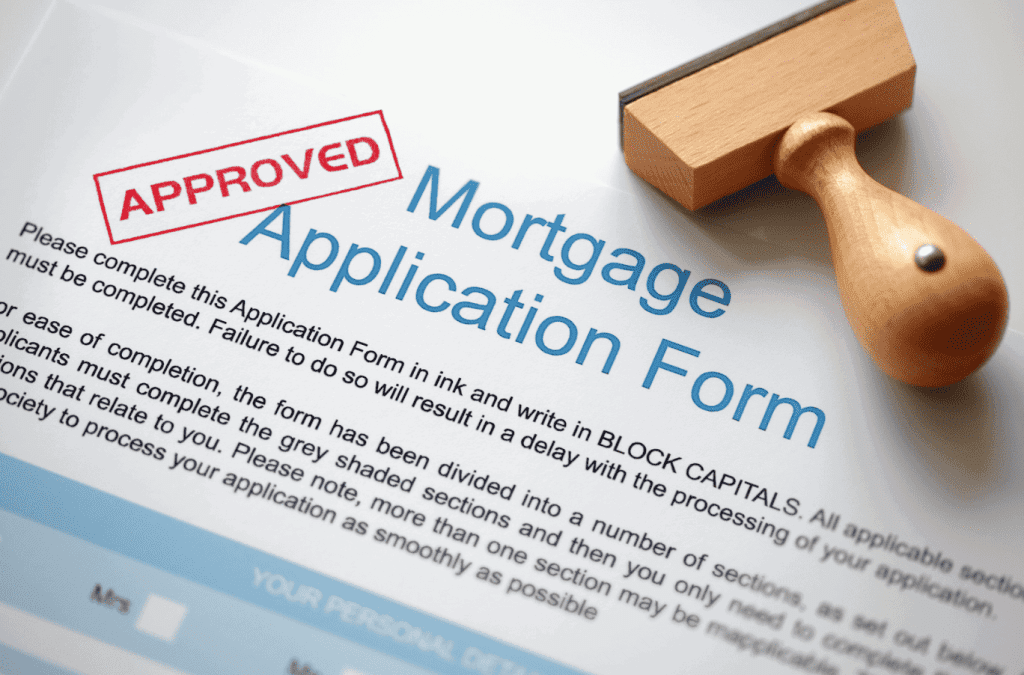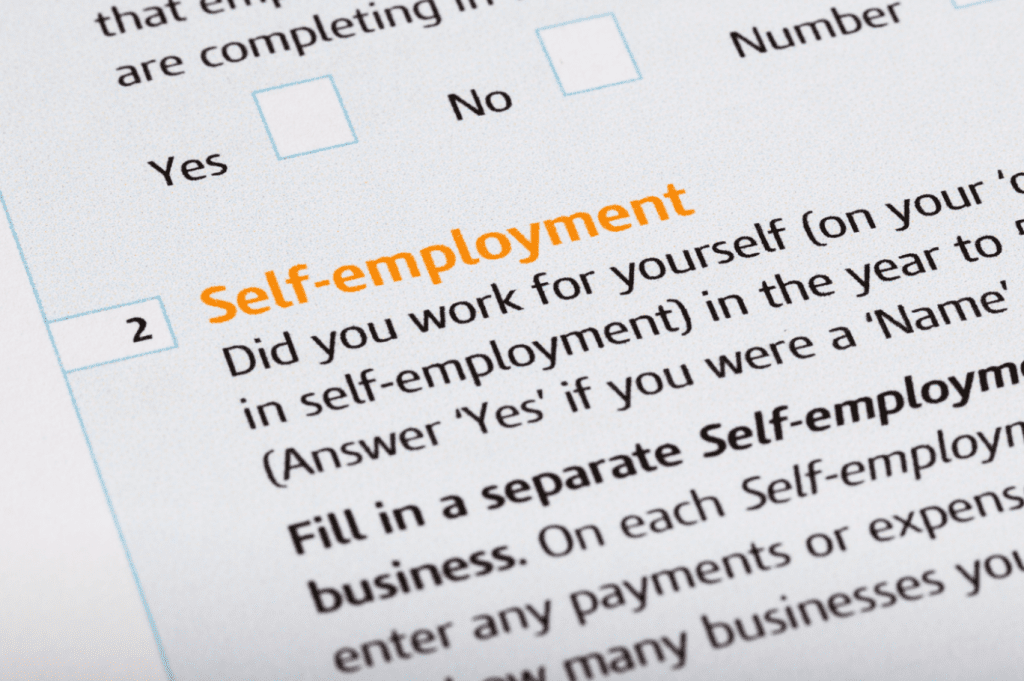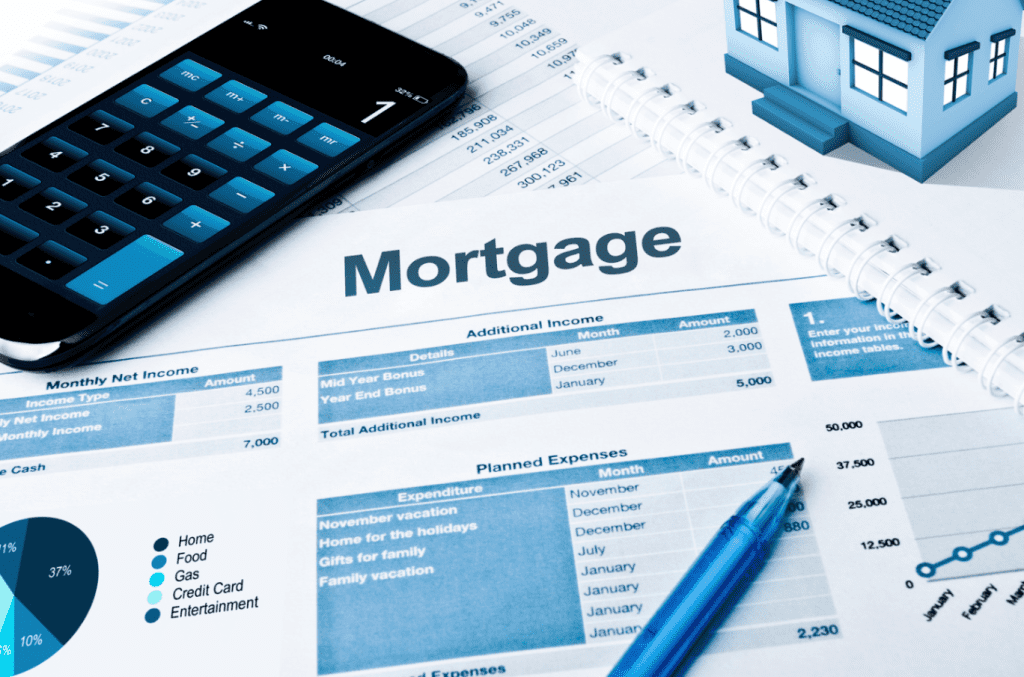When it comes to getting a mortgage, being self-employed can add an extra layer of complexity. Unfortunately, lenders don’t always make the process easy for small business owners and freelancers who have irregular incomes or don’t fit into traditional lending criteria. However, with the right knowledge and preparation, it is possible to secure a mortgage as a self-employed individual. In this blog, we’ll take a look at everything you need to know about applying for a mortgage when you’re self-employed.
What is a Mortgage?
A mortgage is a type of loan that allows you to borrow money from a lender in order to purchase a home or other property. The property itself acts as collateral for the loan, which means that if you fail to repay it, the lender can repossess the property and sell it to recoup their losses. Mortgages typically have long repayment terms and low-interest rates, making them an attractive option for many homebuyers.

How Do I Get Approved for Mortgages if I’m Self-Employed?
For people that are employed, the process of getting approved for a mortgage is relatively straightforward. For the self-employed is not always that simple; lenders will look at your business performance, affordability, credit score, debt-to-income ratio and other factors to determine whether or not you qualify. They may also look at your previous employment history for contractor mortgages to ensure that you have experience. How you present your income to a lender is so important. Some self-employed people are paid in different ways, so it’s important to understand how you are paid in the lender’s eyes so you present the income in a way this benefits you best.
Learn more: How Much Can I Borrow Mortgage Self-Employed?
What Counts as Self-Employed?
In a mortgage application, you’re defined as self-employed if you own more than 20 to 25% of a business, which is your main income. Self-employed people often fall into three main categories: sole trader, company director or contractor.
Learn more on: Mortgage For Business Owners – How To Get A Mortgage As A Business Owner
Limited Company
If you are a company director, your income is normally made up of salary, dividends and any benefits you receive from the business. Lenders will look at your salary and net profits or salary and dividend payments to calculate income for a mortgage as a limited company director. Most lenders take an average of the last two years’ income, but some high street specialist lenders only calculate your income using the last year’s figures. If you own less than 20% or 25% shares with some lenders, they will class you as employed. A specialist lender will allow salary and net profits to be used to calculate income affordability, this can be very beneficial for tax planning.
Contractor or Freelancer
If you are a contractor or freelancer, specialist lenders will use your contract as income proof, this allows you to calculate your income using your day rate instead of your lower taxable income. You are also not required to have been self-employed for 12 or 24 months. You can get a contractor mortgage once you have completed your first three months as a contractor as long as you have two years of industry experience as an employee.
CIS workers can use their CIS slips/Statements like pay slips. You can use your gross day rate, and the lender will use an average of your last three months’ gross CIS income to calculate your annual salary or the last 12 months’ gross CIS income added together. As the lender does not ask contractors to prove taxable income, you can be as tax efficient as possible.
If you are a contractor or freelancer, specialist lenders will use your contract as income proof, allowing you to calculate your income using your day rate instead of your lower taxable income. For more detailed guidance, especially if you have only one year’s accounts, you might find our detailed guide for self-employed individuals with 1 year’s accounts helpful.
Sole Trader
You’ll be classified as a sole trader if you’re registerd as self-employed and have submitted self-asssessment tax return to HMRC. You don’t have shares in a limited company to be classified as a sole trader. To certify your income, you’ll have to provide your mortgage lender with an SA032 form showing your total income. Lenders then use this to take an average of the last two years’ net profit.
Some Specialist Mortgage Lenders will use the latest year’s net profit figure. A couple of specialist lenders will only require 12 months of trading history instead of the 24 months that most lenders require. If you are a contractor or freelancer, lenders will use your contract as income proof. In doing so, this allows them to calculate your income using your day rate instead of your lower taxable income. You also only need to have been a self-employed contractor for three months. Not 24 months like most self-employed sole traders are required to prove.

Self-Employed Mortgage Basics:
When you are self-employed, and want to secure a mortgage loan, there is often more paperwork involved than for someone working for an employer. Because you don’t have the same kind of guaranteed steady income, lenders may require additional information from you to evaluate your financial situation and ensure that you can repay the loan. Mortgage lenders often require the following:
- One or more years of certified accounts
- SA302 forms and a tax year overview (from HMRC) for the past one, two or sometimes three years
- Evidence of dividend payments or retained profits
As well as evidence of your self-employed income, you will also need to provide:
- Passport
- Council tax bill
- Driving licence
- Utility bill
- Bank statements (one to three months’ worth)
The Three Main Qualification Requirements for a Self-Employed Mortgage
Mortgage lenders will look at three main qualification requirements for self-employed mortgages. Let’s take a look at these in more detail:
1. Credit Requirements:
A good credit score is ideal when it comes to qualifying for a self-employed mortgage. If you’re on a self-employed income, some lenders may require a higher credit rating as evidence that you can successfully pay your bills. This is not always the case.
If you have a lower credit rating, it is essential to try and improve this prior to applying for a self-employed mortgage, as lenders will assess this before making their decision.
2. Deposit Requirements:
When it comes to deposit requirements, lenders will look for at least 5-10% of the purchase price as a down payment (Deposit). This is especially true for self-employed borrowers, as lenders want to ensure that they have the finances to make mortgage payments. In addition, lenders may also require proof of other assets, such as investments or savings accounts in order to qualify. This helps the lender determine if you are able to meet all your debt obligations and can be used as a cushion in the event of an emergency.
3. DTI Ratio:
Finally, your Debt-to-Income (DTI) ratio is also important for self-employed mortgage applicants. This compares how much you owe each month to how much you earn and is used to illustrate how much you are able to afford. A good DTI ratio is 36% or less, and anything over 43% may require a lower loan-to-value product (LTV) or other compensating factors.

How Much Can You Borrow as Self-Employed?
The amount you can borrow as a self-employed individual may vary depending on your lender. Generally speaking, you can borrow 4 to 5 times your annual income. For example, if you have an annual income of £50,000, you may be able to borrow up to £250,000. It’s important to remember that affordability is determined case-by-case, and lenders can be more or less lenient depending on your circumstances. It’s also worth noting that some lenders may be more geared towards self-employed applicants, so it’s worth researching to find the best deals.
Here at Jones and Young, we understand that self-employed clients have unique requirements, and we are happy to work with you to find the most suitable loan for your needs. For more information and advice, please contact our team today!
Top Tips Boost Your Mortgage Chances:
A self-employed mortgage applicant should, wherever possible, try to:
1. Avoid Extended Breaks:
Lenders will want to see a consistent pattern of self-employment. Try to avoid taking long breaks between jobs or starting and stopping new businesses, as this can impact your eligibility.
2. Keep Good Records:
You’ll need to provide reliable financial records such as tax returns, business accounts or SA302s that show you have been in business for a sustained time.
3. Use an Experienced Broker:
An experienced broker can help you to find the best deals that are tailored to your individual circumstances. They have access to a wide range of lenders and products, so they can advise you on the most suitable mortgage for your needs.
4. Improve Your Credit Score:
A good credit score can help to increase your chances of getting accepted for a mortgage. Make sure to pay off any existing debts and check your credit report for any errors that could hurt your rating.
5. Consider a Guarantor Option:
If you’re having difficulty finding a lender willing to offer you a loan, consider asking a relative to act as a guarantor. This can help to prove your affordability and help you increase the borrowing power of your application.
6. Have a Larger Deposit:
A larger deposit will help to reduce the amount of borrowing you need and can also increase your chances of being accepted for a loan. Generally speaking, lenders prefer deposits of around 10-15% or more, but this may vary between providers.
7. Consider Your Cashflow:
Make sure to manage your cash flow carefully so you can maintain regular payments. Some lenders may be more willing to accept irregular-income applicants if they can prove that their cash flow is sufficient to cover repayments.
We hope that this has been useful and has given you a better understanding of the self-employed mortgage process. If you have any more questions or would like to discuss your options, please do not hesitate to get in touch with our team today! We’ll be happy to help.

Self-Employed Mortgages FAQs:
We’ve done our best to try and answer some of the most frequently asked questions about self-employed mortgages below:
Is it hard to get a mortgage when self-employed?
Getting a self-certification mortgage is no longer possible. Getting a self-employed mortgage shouldn’t be too challenging as long as you can prove that you have a reliable income. Mortgage providers will often ask for bank statements, credit scores, and DTI ratios to work out if you’re eligible for one. Our advisors at Jones and Young can provide you with more information and assistance if needed.
How long does it take to get a self-employed mortgage?
Depending on your circumstances, it can take anywhere from a few weeks to several months. The process involves completing paperwork, gathering relevant documents, and meeting with the lender to discuss options.
How many times my salary can I borrow for a mortgage self-employed?
As a general rule, self-employed people can borrow 4 to 5 times their annual salary.
How do you work out a mortgage for self-employed?
When applying for a mortgage, lenders will typically use the figures you’ve submitted in your tax returns or accounts. Using these, they are able to make a judgement on the loan you can afford. For contractors, lenders will use your gross contract day rate or CIS gross pay.
How much deposit do you need for a house if you are self-employed?
Lenders generally ask for a 5-10% deposit if you’re self-employed and looking to buy a house. The higher your down payment, the lower your interest rates will be. This is because lenders view larger deposits as less of a risk.
Can I get a mortgage within 3 Months of being self-employed?
No, unless you are a contractor or freelancer. Generally, you must have been self-employed for at least 12 months. Mortgage lenders calculate your trading history and income records to prove that you can afford the loan repayment with an acceptable degree of certainty. The majority of lenders will require 2-3 years’ worth of SA302 as evidence of your earnings. Only specialist lenders, such as Jones and Young, allow 12 months of trading history
What is a joint mortgage?
A joint mortgage is one that you share with other people, e.g. a partner or friend. A joint mortgage can be more affordable. Lenders do allow you to mix self-employed income with employed income to maximise the amount you can borrow. If you currently pay higher mortgage rates, using both incomes could reduce your interest rate and make you look more attractive to more lenders. It also means that if one of you has difficulty making payments, the other person is responsible for covering them.






